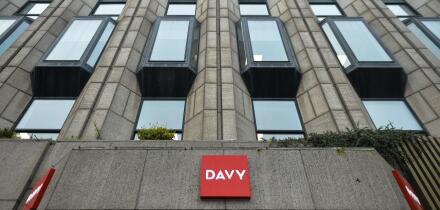Austria took €6bn out of the market on Thursday in a trade a lead said was astutely priced to current conditions in euros.
The sovereign opted for a triple tranche deal for its third syndicated issue of the year, launching a new October 2030, a tap of its existing October 2036s and a tap of its green May 2049s.
Barclays, Bank of America, Citi, Goldman Sachs, JP Morgan and Raiffeisen Bank led the deal.
Austria has so far priced two syndicated transactions this year after bringing a €5bn 2.9% February 2033 at the start of the year and a dual tranche May 2029 and October 2053, which was priced in April.
“After the volatility and the problems we have had in the euro primary market, particularly in the last month, my view is that we are having a bit more stability,” said an onlooking banker on Thursday morning. “Liquidity has improved marginally and it is good to see a couple of deals come through. Conditions just feel a bit better.”
The seven year was priced at 3bp over mid-swaps, 2bp inside the initial mid-swaps plus 5bp area guidance, while the 2036s tap tightened 1bp from mid-swaps plus 31bp area and the €1bn no-grow green 2049s tap tightened 2bp from mid-swaps plus 55bp area.
Onlooking SSA bankers said the sovereign’s cautious approach to the market was indicative of uncertain and highly volatile conditions.
“Austria is doing a triple tranche deal today instead of a single or dual tranche,” said one banker. “It seems like even they have the worry about taking out the size they need in the current market.”
Investors piled in early with €11.5bn of orders for the seven year, with leads contributing €750m. Guidance for the tranche was revised to mid-swaps plus 4bp area.
The October 2036 tap drummed up €8.7bn of demand initially, with €1.28bn from the leads. Bankers also revised guidance on the green May 2049 tap, to mid-swaps plus 54bp area, as orders hit €7.8bn, which included €895m from the banks.
A lead banker said the issuer paid 4bp of concession on the new 2030, 4bp for the 2036s tap and 2bp on the 2049s. She said the issuer saw 3bp of greenium on the third tranche.
Markets had been expecting the transaction sooner, as the sovereign typically brings a syndication post-summer.
Austria recently tweaked its funding plan by reducing its short end issuance by €5bn, and increasing its funding at the long end by €5bn.
A lead banker told GlobalCapital: “Prior to the numbers coming out, there were discussions around which avenues were best to take so as to take the size out of the market. Euros has been quite tricky: there has been an uptick in volatility and some executions in the market haven’t quite gone to plan.
“Austria is one of just two issuers in the market to have taken €6bn out at once. That in itself is very impressive. The issuer was really thoughtful about the triple tranche. It gave them full flexibility to not put too much pressure on any one part of the curve.”
Execution risk has not been restricted to small issuers this year. The European Union went through a repricing of its curve during its last transaction, meaning new issue concession around the execution had been greater than in the past, the banker said.
“Because Austria spread out the issuance, they reduced oversupply at any one point,” she added.
The banker described the €4bn tranche as attracting a “very strong book”, which she said could have theoretically come under more pressure if the issuer had opted for a single tranche deal.
“Their thoughtfulness has protected both their cost of funding but also — to a degree — their curve, which didn’t move to the same magnitude off the back of the announcement.
“Not only did they achieve the size with absolute conviction, they listened and used their own understanding of the market to balance the relative value for the taxpayer.”
By the time leads set the spreads, investors had put in €47bn of demand across the three tranches.
“We are transitioning into a world without quantitative easing,” continued the banker. “Removing all extreme events from the equation, most execution during QE was smooth. Some issuers have returned from summer not quite understanding that a lot of these end buyers, both in primary and secondary, are not there in the same magnitude anymore. That has caused some performance issues in the aftermath.
“Austria listened to and observed the market and in that sense they did a really good job.”
Books had topped €21.7bn on the seven year, of which €1bn was from the leads, when the tranche size was set at €4.5bn. This included €500m retained by the issuer. For the shorter, 15 year tap bankers contributed €2.18bn to a final book of €25bn, sizing the deal at €1.25bn, which included €250m retained.
The May 2049 green tap was topped up by €1.25bn in total, which included €250m from the issuer. Final books closed at €14.4bn, including the same lead sum.
Total books on the deal closed at €61bn.







